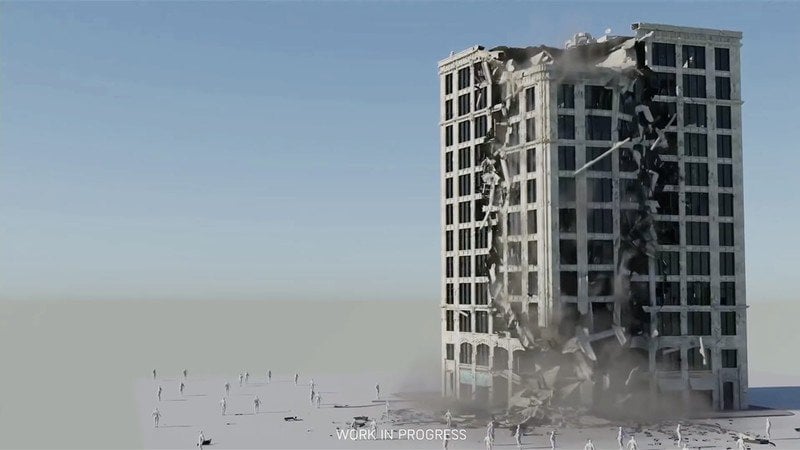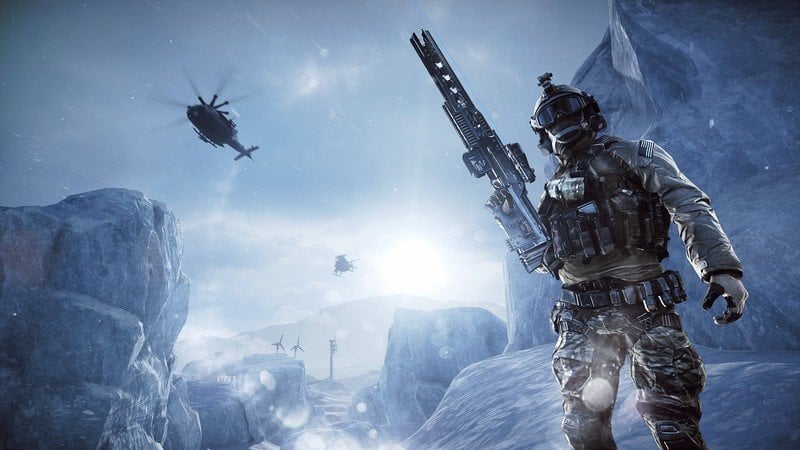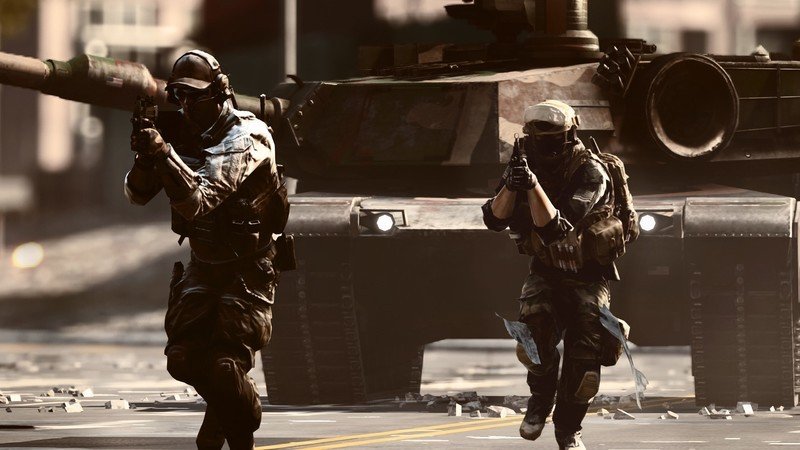The next Battlefield will support older consoles — but the move doesn’t have to squander its next-gen vision.
Electronic Arts announced its fourth-quarter earnings on Tuesday, coupled with new details on the next mainline entry in the Battlefield franchise. The upcoming title, dubbed Battlefield 6 ahead of its June reveal, is now headed to previous-generation PlayStation 4 (PS4) and Xbox One consoles, alongside the latest generation of consoles and PC. As a project once pitched as a “next-gen” experience, the move made headlines, although was somewhat expected in the current gaming landscape.
While Electronic Arts remains coy on its rumored near-future setting, Battlefield 6 has garnered a reputation for its ambition, representing what it calls “a true next-gen vision for the franchise.” Its debut appearance focused exclusively on those technical innovations, spotlighting high-player-count battles and advanced environmental destruction models. But with aging previous-generation hardware an unavoidable roadblock, the true next-gen-exclusive Battlefield remains a pipe dream in 2021.
The messy PS5, Xbox Series X rollout means a next-gen-exclusive Battlefield was nigh on impossible
Battlefield 6 will join upcoming Electronic Arts-published sports titles as a cross-generational title, spanning previous eighth-generation consoles (PS4 and Xbox One) alongside the newer PlayStation 5, Xbox Series X, and Xbox Series S.
“The reference [to next-gen] specifically from our prepared remarks was around the nature of gameplay. What we can do with the fidelity of the game, what we can do with physics, artificial intelligence, and the immersive nature of the game,” EA CEO Andrew Wilson told investors on Tuesday.
“And in the case of Battlefield, what we can do with respect to the amount of players that we can have in the game, and the nature of destruction and those all-new Battlefield moments that are truly next-gen opportunities that we are able to do in the context of our next-gen franchises because of the increased processing power and memory and output of the new consoles.”
The insight highlights what the latest consoles bring to Battlefield, with hardware advancements tied up in fundamental game design. It’s especially true with the new generation, where speedier solid-state drives (SSDs) raise the ceiling, supporting larger game worlds, complex systems, and much more beyond load times.
The decision to support PS4 and Xbox One has seen mixed reception among the community, with concerns of limitations imposed as a result of broader support. But the imminent Battlefield 6 reveal should provide clarity, with Andy McNamara, director of communications for shooters and Star Wars, asking critics to sit tight. “Just because one thing is true doesn’t mean another can’t be,” McNamara tweeted.
I am seeing concerns about the cross generation news today around Battlefield, and I would ask that you kindly wait for more details. Just because one thing is true doesn’t mean another can’t be.
— Andy McNamara (@TheRealAndyMc) May 12, 2021
From a creative standpoint, it would be naive to assume old systems haven’t shaped some parts of the next Battlefield. In supporting anything but the bleeding edge, games must be flexible to scale across a broad spectrum of hardware. But it demands a cautious approach, running the risk of neglecting a share of the console audience (looking at you, Cyberpunk 2077), or hampering creative direction to ensure parity in performance.
But that’s far from the reality in the modern world, especially for a multi-million-dollar property like Battlefield. The military shooter remains a standout title in Electronic Arts’ portfolio, with the publisher recently expressing plans to elevate the title beside top franchises like Apex Legends and FIFA. For Battlefield, skipping the previous generation would have profound implications, especially for the challenges facing these latest console launches.
 Electronic Arts showcased various technical innovations associated with the next Battlefield last June.
Electronic Arts showcased various technical innovations associated with the next Battlefield last June.
Both Xbox Series X and PlayStation 5 remain hard to find in mid-2021, with scarcity stemming back to their respective November launches. Tight supply is further amplified by global chip shortages amid the pandemic, bottlenecking production for the foreseeable future. That comes as interest in gaming has skyrocketed amid stay-at-home orders, stripping any available stock from store shelves. It’s a constant struggle to obtain these devices, with many fetching high prices via the resale market.
A next-gen-only Battlefield might’ve once been on the roadmap. Whether planned since inception, or a late decision, no developer could’ve predicted today’s console landscape. It’s simply financially unviable as Electronic Arts’ fall frontrunner, especially for a service-based game dependent on its community. Ultimately, the next Battlefield needs support from the older consoles to survive, especially where the current generation remains inaccessible to most.
How Battlefield 6 may tackle the generational gap
While Electronic Arts has several options to alleviate issues associated with a cross-generation release, recent comments imply its preferred solution. The publisher sees larger player counts and destructive environments, two defining pillars of a Battlefield experience, as “next-gen opportunities” for the franchise. That could see PS4 and Xbox One versions scaled back, leaving some features tied up in the additional horsepower.
The approach suggested Battlefield 6 has been designed with an added level of scalability, sharing gameplay fundamentals, but spun out into a distinctly new version of the game. That middle ground could help developer DICE deliver upgrades to the best consoles, while still supporting those existing users. It could spark headaches for cross-generation multiplayer, although I’d hope advancements in cross-platform support could bring older consoles together, with new consoles separated into their own multiplayer pool.
It wouldn’t be the first time for Battlefield either — Battlefield 3 and Battlefield 4 also scaled back drastically on Xbox 360 and PlayStation 3 consoles. While PC pioneered 64-player matches, older consoles saw smaller maps and 24-player lobbies. There’s also the expected visual downgrade, with a reduced resolution and lower framerate to help the porting process for older consoles.
Battlefield 6 will likely fare better on PS4 and Xbox One, versus the aging Xbox 360 and PlayStation 3 of the time, but still far from the next-generation experience. The approach should allow the best consoles to flourish, in line with its “next-gen” vision, but still making the title accessible to millions on older hardware. It all relies on Electronic Arts’ ability to establish the balance, delivering a Battlefield that caters to both generations.


